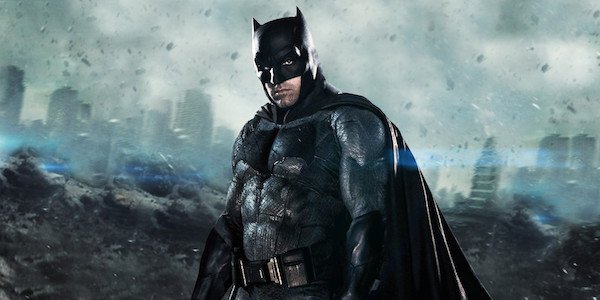Batman May Kill, But That Doesn’t Mean It Should Be The Norm

While it’s arguably the most polarizing entry in the DC Extended Universe, three years after its release, Batman v Superman: Dawn of Justice is still a popular topic of conversation in the comic book movie world, and its director, Zack Snyder, has helped with that. Just last month, Snyder screened Batman v Superman’s Ultimate Edition alongside his director’s cuts of Dawn of the Dead and Watchmen as the capper to a 3-day event, and during one of the Q&A sessions, Snyder hit back against those who criticized his choice to have Ben Affleck’s Batman kill, saying that those who have a problem with that should “wake the fuck up.” And he is right, Batman has killed people various times over the decades, but that fact doesn’t mean that it is or should be his normal course of action. Far from it, Gotham City’s Dark Knight is a more interesting character when he chooses not to kill, no matter what.
During Batman’s earliest comic book appearances, when he was written like the pulp characters popular at the time rather than a standard superhero, Batman had no issue dispensing lethal measures against the criminals he fought, like when he snapped a man’s neck while swinging on a rope. Starting in the 1940s, though, he adopted a no-kill policy, which was presumably done to make him more appropriate for younger readers. That no killing rule has stuck for the most part, though there are instances when Batman has taken a life, both in the main DC universe and in alternate continuity stories (not in The Dark Knight Returns, contrary to what some believe).
For the sake of this piece, let’s only focus on Batman’s movie appearances. Michael Keaton’s Batman had no issue with killing foes, as evidenced by when he blew up Ace Chemicals while people were still in it in Batman and when he attached a ticking bomb to a Red Triangle Gang member in Batman Returns. Val Kilmer and George Clooney’s respective Batmans had a slightly softer method with dealing with Gotham City’s superstitious and cowardly lot, but it wasn’t until Christopher Nolan’s Dark Knight trilogy rolled around that a cinematic Batman declared that he wouldn’t kill. However, that stance is muddied when considering that he let Ra’s al Ghul fall to his death in Batman Begins and drove straight into a trash truck in The Dark Knight that almost certainly crushed the Joker henchman driving it. By the time we get to Batman v Superman: Dawn of Justice, Ben Affleck’s Bruce Wayne, who has become more weary and cynical, has no issue with killing criminals, whether it’s by breaking their necks in a brawl or gunning them down in the Batmobile.
So yes, when it comes to movies, Batman has left a fair amount of bodies in his wake, but thanks to the Dark Knight trilogy, as well as various comic books, TV shows and direct-to-video movies, Batman is usually depicted as unwilling to kill criminals, no matter how heinous their crimes are. Why is this? The explanation changes depending on who’s writing the character, but my favorite explanation comes from the 2010 animated movie Batman: Under the Red Hood, adapted from the 2006 comic book story arc “Under the Hood.” When Jason Todd, who’s holding The Joker at gunpoint, questions if Batman’s moral code doesn’t allow for him to kill his arch-nemesis or if it would be too hard for him to cross that line, Batman responds:
No! God Almighty, no! It'd be too damned easy. All I've ever wanted to do is kill him. A day doesn't go by when I don't think about subjecting him to every horrendous torture he's dealt out to others and then... end him… But if I do that, if I allow myself to go down into that place, I'll never come back.
Jason Todd then points out that he’s not asking Batman to kill someone like Penguin, Scarecrow or Two-Face, only The Joker, but Batman refuses. No matter how much he hates Joker, no matter how many people the cackling crook has murdered, Batman just can’t cross that line. And frankly, Batman following that rule makes him a more compelling character because it’s an understandable flaw in his approach to fighting crime.
Despite having no superpowers, Batman is usually considered to be one of the most formidable heroes in the DC universe. Give him enough prep time, and he can win just about any battle, and he’s fought his way out of so many fantastical conflicts that he’s earned the nickname Bat-God among fans. But when you boil things down to basics, Batman is just a ‘regular’ man waging a war against Gotham City’s criminal underworld, sometimes alone, sometimes with partners. With Gotham City so infested with evil, Bruce Wayne’s life would be a lot easier if he didn’t bother throwing villains in Blackgate Prison or Arkham Asylum, and instead just eliminated them right off the bat (pun slightly intended), but he can’t. He’s incapable of doing that, for better or worse, adding extra drama to an already incredibly dramatic character.
Having watched his parents being murdered down in Crime Alley, Batman can’t bring himself to take the life of another. To do so would make him an executioner, and as much as he embraces darkness, Bruce won’t delve that deep into the shadows. He’s incapable of doing so, even if he comes close to at times (like when he threatened to kill Joker in Batman Beyond: Return of the Joker for turning Tim Drake into a mini-Clown Prince of Crime). It’s the same reason why he won’t use a gun; if he did that, he would become too much like the man who irreparably damaged his life and the evildoers he’s dedicated his life to thwarting, and he’s not willing to fall that far, even if it makes his ‘job’ significantly harder. Zack Snyder tossed all that out for Batman v Superman: Dawn of Justice, and while that decision makes sense if you’re looking at Batman fighting crime through a more practical lens, it conflicts with the spirit of the character that has developed over the years.
Your Daily Blend of Entertainment News
I’m not saying that all superheroes shouldn’t kill; The Punisher wouldn’t be who he is if he didn’t snuff out criminals, and it’s hard to believe that heroes like Captain America and Wonder Woman who have been in wars didn’t take any lives. I even understand Superman having to kill in rare instances, such as when he snapped General Zod’s neck in Man of Steel, another controversial DCEU decision. For Batman, though, killing flies in the face of his moral code. Sure there might be instances where he’s not able to save everyone, but to the best of his ability, he won’t have anyone die at his hands. Besides, if Batman went on a killing spree around Gotham City, that would destroy the already fragile relationship he has with Commissioner James Gordon and the Gotham City Police Department, and that would definitely be problematic for his mission.
Certainly one of the reasons superheroes have endured for so long is because different writers and artist have been able to interpret these characters differently, and change and development is integral to longevity. That said, there’s no denying that most characters have core traits and elements that need to be retained in traditional depictions, and while it’s up for debate whether Batman not killing is one of those things, the fact of the matter is that more often than not you’ll see him exercise restraint rather than execute his foes, even if the movies haven’t always followed this rule. It’s not necessarily the most realistic and logical approach to fighting crime, but hey, there’s a lot about Batman that doesn’t translate for real life, and yet we nonetheless still enjoy him 80 years after his introduction.
Let us know where you fall on the Batman kill debate in the comments below. We’ll see how Matt Reeves handles the character when The Batman is released on June 25, 2021.
This poll is no longer available.

Connoisseur of Marvel, DC, Star Wars, John Wick, MonsterVerse and Doctor Who lore, Adam is a Senior Content Producer at CinemaBlend. He started working for the site back in late 2014 writing exclusively comic book movie and TV-related articles, and along with branching out into other genres, he also made the jump to editing. Along with his writing and editing duties, as well as interviewing creative talent from time to time, he also oversees the assignment of movie-related features. He graduated from the University of Oregon with a degree in Journalism, and he’s been sourced numerous times on Wikipedia. He's aware he looks like Harry Potter and Clark Kent.
